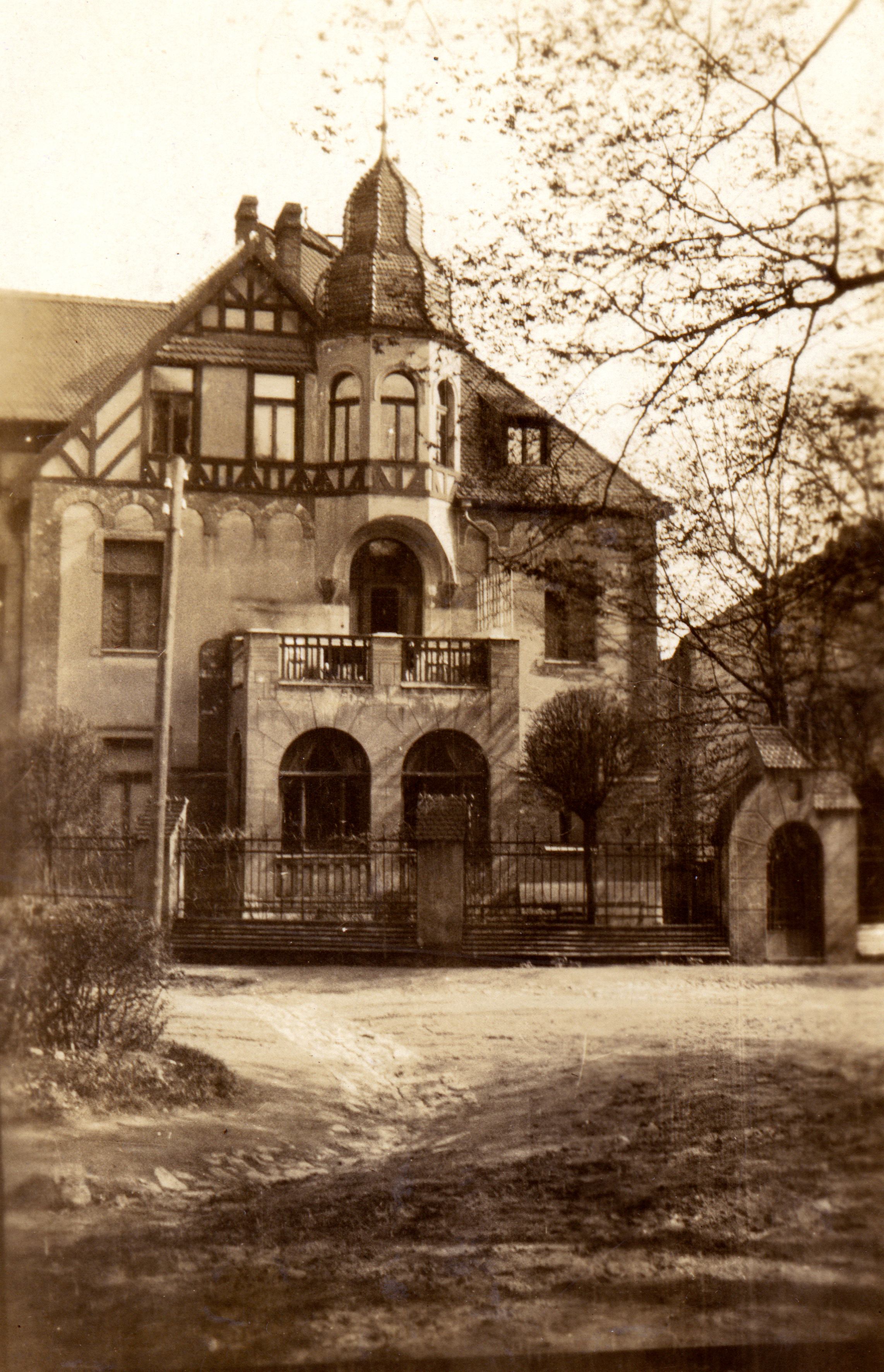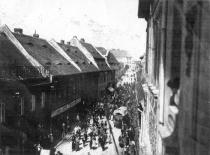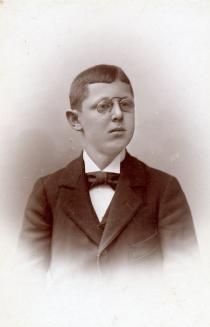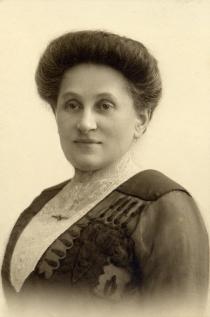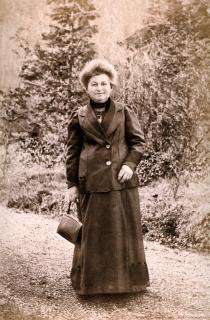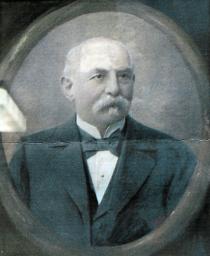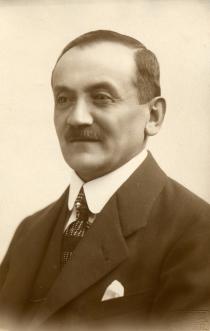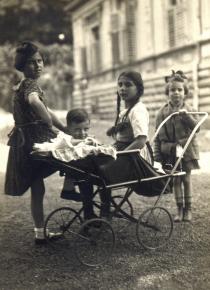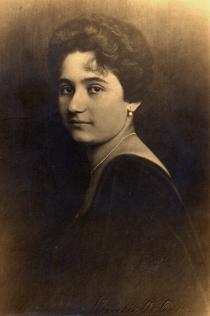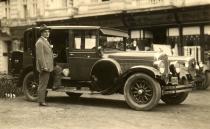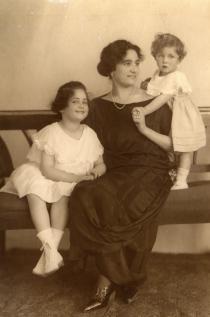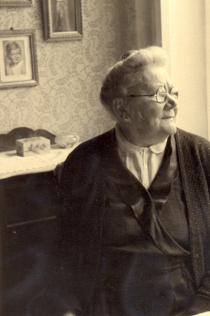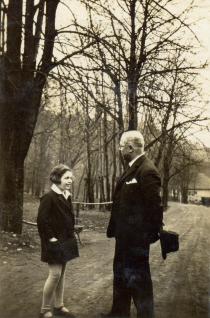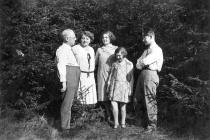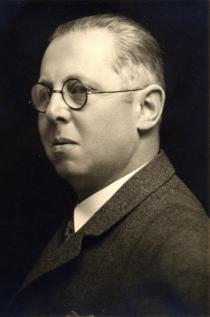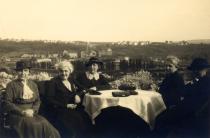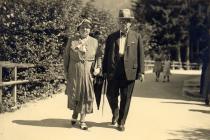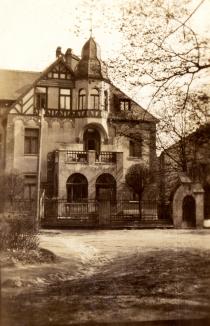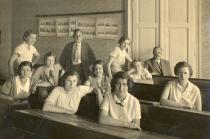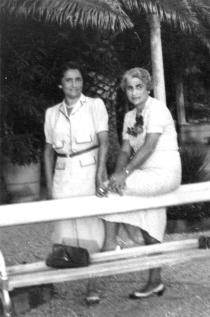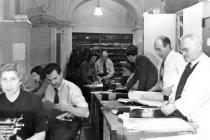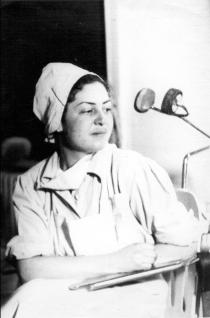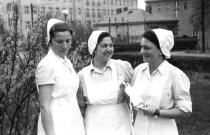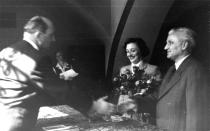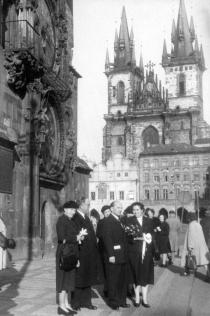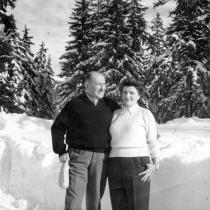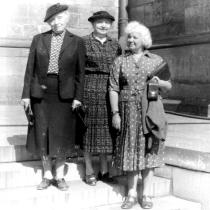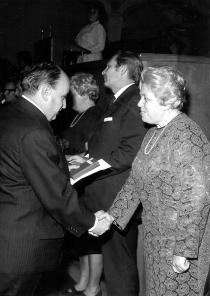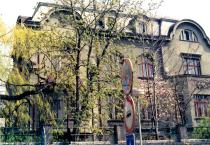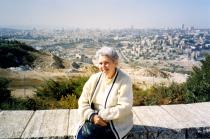This is a picture of our house in Dubi. The photo was taken in 1930.
The town of Dubi was divided up into two parts, Upper and Lower. Lower Dubi was more industrial, and in Upper Dubi private villas surrounded the local sanatorium. Upper Dubi and Lower Dubi are connected by a road that leads to the German border. When they were married my parents bought a villa across from the sanatorium, and the factory was located in Lower Dubi, where my father walked every day for half an hour to the office. When it was raining too hard, he took the streetcar one stop, but then had to walk a ways more. We didn't have a car.
We lived on the middle floor of our villa. Below us lived in-laws of one of my brother's sisters, and the apartment above us was rented to some family of teachers. Our apartment had a terrace, where we usually ate in the summer. There was a large chestnut tree in the garden, whose branches reached up to the terrace. We looked out into greenery on all sides. At home we employed a cook, who also sometimes took me out in a baby carriage. But otherwise my mother brought me up, though my sister had had a nanny. On top of that we had one or two household helpers.
The apartment was made up of large rooms, we had a den, which was actually a library, where my father also had his collection of old clocks, of which three have remained in my possession. Further there was a relatively large dining room and living room, then a bedroom, washroom and kitchen with a larder. In my parents' bedroom I remember there being a large wardrobe and a bureau made of light-colored polished wood. I remember being fascinated by the quantity of drawers in that bureau. One had ties in it, another handkerchiefs, another socks. Back then it seemed like in a store to me.
As very small children my sister and I had our room downstairs with our relatives, who however had two sons, so when we were big enough, my parents thought it better to move us to a room up on the third floor, beside the teachers, that is when their daughters got married and left home, and the room was then free. I remained in it, alone, when my mother and sister moved to Teplice in 1929.
At home we had running water and electricity. We had a telephone at home as far back as I can remember, I recall that already as a little girl I liked talking on the phone. It was mounted securely on the wall, and I had to bring a chair and climb up on it to be able to use it. We had parquet floors; in the dining room, which was this fancy room, there was textile wallpaper, like in some palace. The other rooms were painted white.
